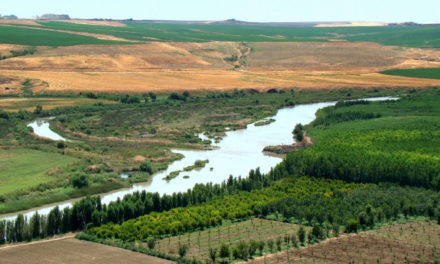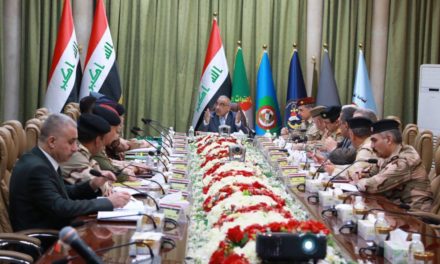A few months into his term Iraqi Prime Minister Haider Al-Abadi laid out his vision for reforms in front of global leaders at the World Economic Forum in Davos. By the summer of 2015 his political reforms had grabbed all the headlines, overshadowing the reforms he was bringing to the military and economy. But as the fight against Da’ish draws down, the focus has turned back to the economy.
On October 31st the World Bank published its Doing Business 2018 report, an annual report “measuring the regulations that enhance business activity and those that constrain it” and ranks “the ease of doing business” across 190 countries.
On the surface, the latest report is no different for Iraq than the previous Doing Business reports. A closer look, however, shows a different story. For example, out of ten indicators that make up an economy’s overall score, Iraq improved on six indicators from 2017.
In “Starting a Business”, the first indicator of the report, which looks at the number of procedures, time, cost and paid-in minimum capital required to start a limited liability company, Iraq increased from 164 in 2017 to 154 in 2018. Being 154th in the world is not usually something to brag about, but it is when we consider that Iraq is competing against 189 other countries looking to improve their image and compete for international investment. This is also a commendable improvement given Iraq’s infamous bureaucracy, which can make obtaining the simplest of government services difficult. Finally, let us not forget that these efforts were undertaken as Iraq fought and defeated the world’s largest terrorist organization.
That’s just one service-related indicator. The others had improvements as well by this amount of points:
Dealing with Construction Permits
Getting Electricity
Registering Property
Resolving Insolvency
These improvements are a direct result of the work conducted by the Streamlining Procedures Committee which was established by Al-Abadi in the Prime Minister’s Office during January 2015 and was tasked with identifying the services the government provides to Iraqis (1112 services!). The committee then led the simplification of 108 personal services such as obtaining a driver’s licence or registering property, and 70 non-personal services such as registering a business or obtaining a construction permit, which have a direct result on the economy and improving the environment for the private sector.
The cabinet office established a committee in May 2017 to study the four legal indicators of the Doing Business report and provide recommendations for bringing Iraqi laws and government regulations in-line with international best practices. To ensure the committee is effective it includes members of the State Council and the Higher Judicial Council. The committee is currently working with the World Bank to study the details and methodology of these indicators. Their work might not be reflected until next year’s report or even the year after that, as any changes to laws must pass through the Iraqi Council of Representatives. Nonetheless, work is being undertaken to move in the right direction.
That sentiment is shared by the World Bank which issued a press release on November 9th confirming that although Iraq’s overall ranking dropped from 165 to 168, it is due to the World Bank introducing some methodology refinement and data revisions that impact how countries rank. In the Doing Business 2017 report, the paying taxes indicator was expanded to include post-filing processes—the processes that occur after a firm complies with its regular tax obligations. This year, the methodology was further refined in accordance to best practices. In particular, the indicator reviewed the way it captures value added tax and corporate income tax audits.” For this reason Iraq’s “Paying Taxes” ranking dropped from 52 in 2017 to 129 in 2018.
Saroj Kumar Jha, the World Bank’s Middle East Regional Director is quoted as saying, “As part of its Vision 2030 program, the Government of Iraq is embarking on a substantive reform agenda that builds on the Governmental General Framework Program (2014-2018) which prioritizes institutional economic reforms and private sector development. The World Bank Group is committed to support its efforts in identifying and pushing forward priority reforms that can help foster the business environment and generate growth and better opportunities for all Iraqis.”
We cannot forget that the Doing Business report includes a Distance to Frontier ranking. “The distance to frontier (DTF) measure shows the distance of each economy to the ‘frontier,’ which represents the best performance observed on each of the indicators across all economies in the Doing Business sample since 2005. An economy’s distance to frontier is reflected on a scale from 0 to 100, where 0 represents the lowest performance and 100 represents the frontier. The ease of doing business ranking ranges from 1 to 190.” On this metric, Iraq improved from 44.39 in 2017 to 44.87 in 2018.
The above data paints a picture of an imperfect yet improving economy, which is becoming more attractive to investors as the war against Da’ish concludes and as the world sees Iraq’s efforts to reform as serious and having an impact on the ground.

Hassan Hadad
Hassan Hadad is an economist with the Economic Reform Unit in Baghdad.










